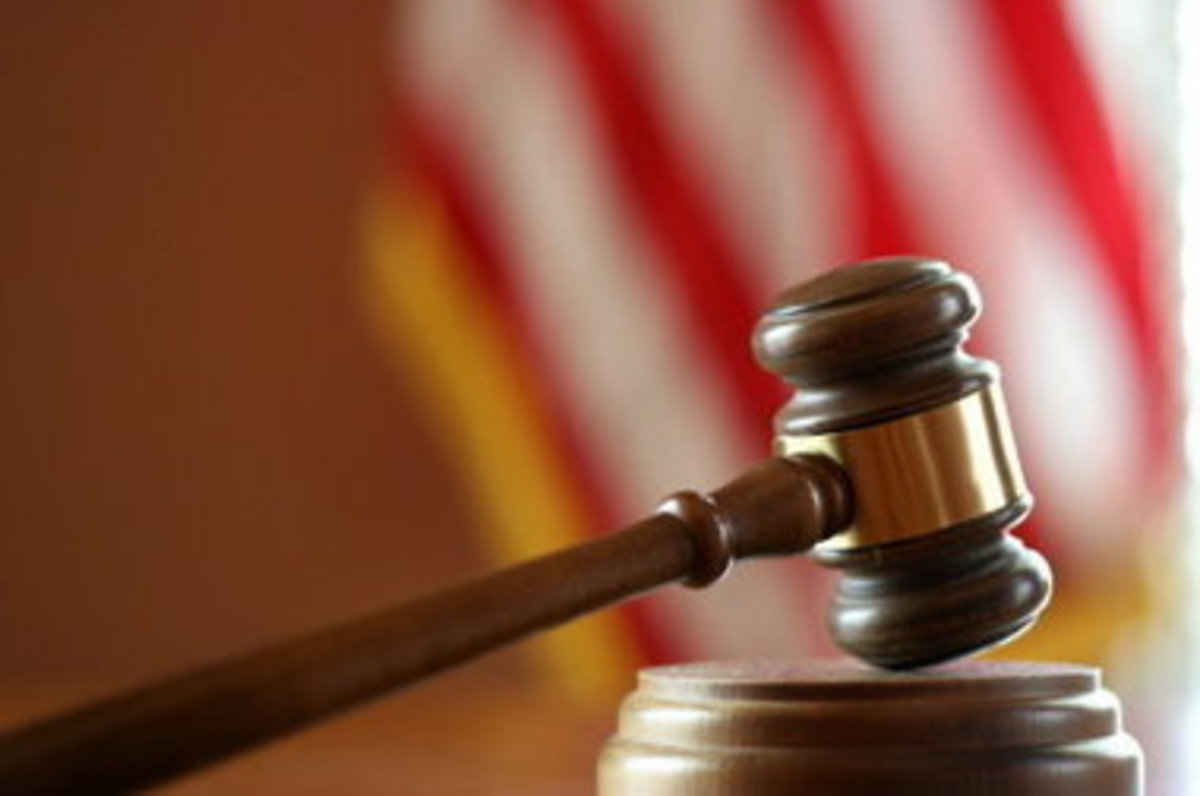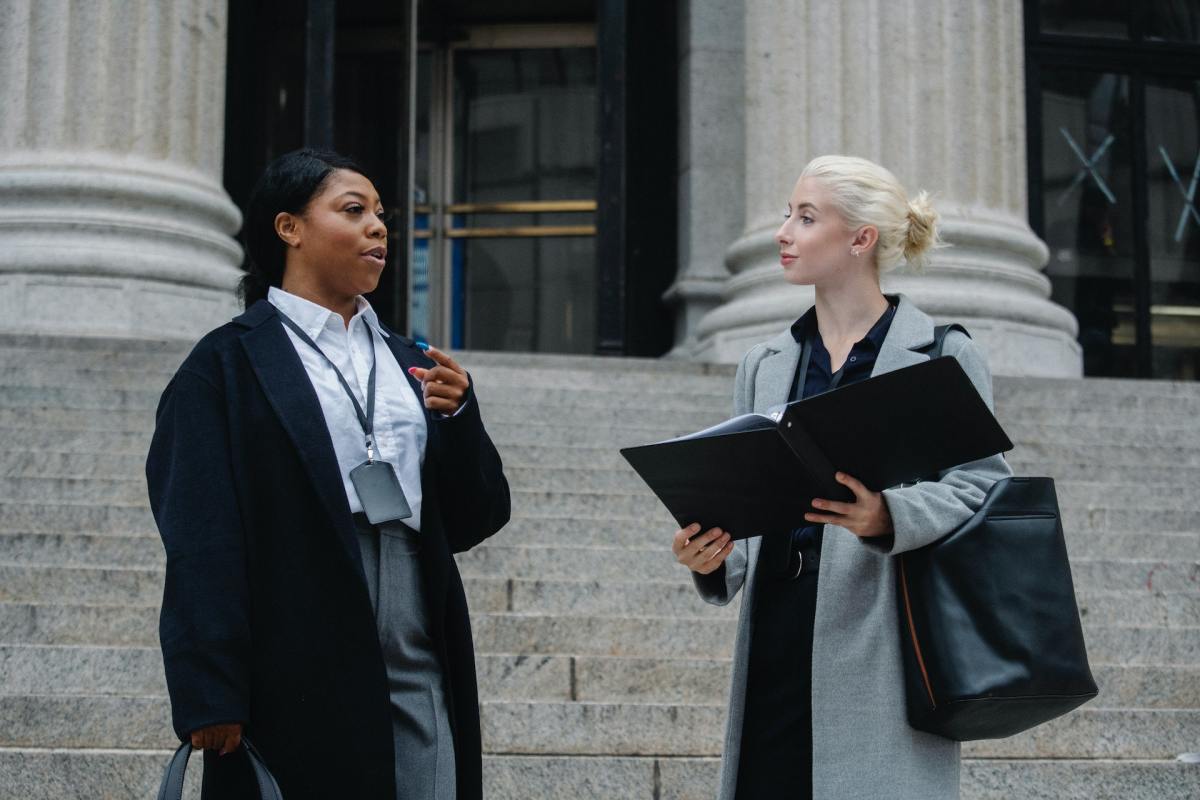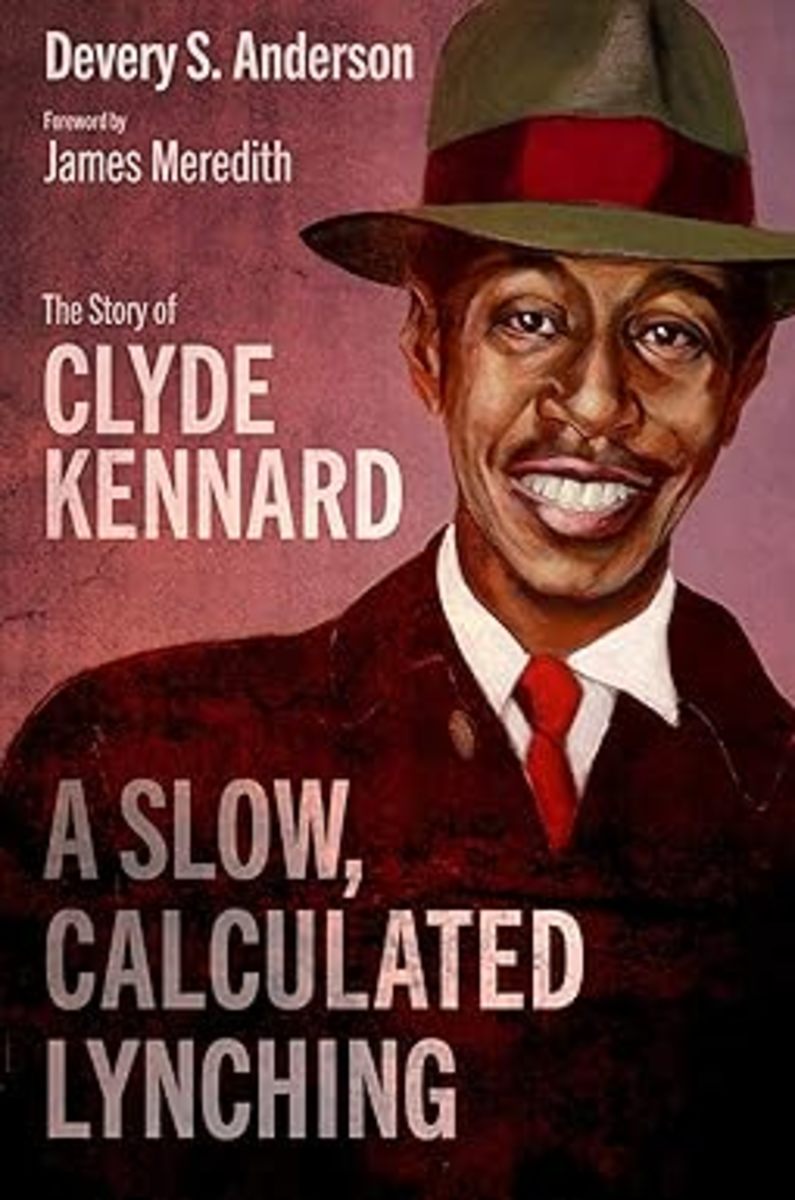You Are The Jury - The Case of Illegal Web Page User
Is this really copyright infringement?
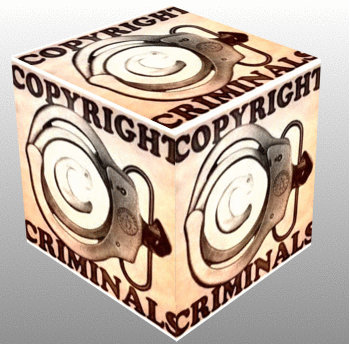
Copyright Infringement in the U.K.
Welcome to another copyright infringement case for your reading pleasure.
There are two cases here: both of which have been ruled upon. The first case is final; the second case can appeal.
This is a chance to see how the legal system works in other countries and the kinds of lawsuits they bring to their courts for rulings and judgments. While there are different laws for different countries in the European Union (EU), all pretty much abide by the same copyright laws. They are allowed to refine them for their own country but only after running it by their Court of Justice of the European Union (CJEU).
It is amazing to me that these two lawsuits made it before a judge in a courtroom and even got a ruling instead of being dismissed. See what you think!
1. Swedish Journalists vs Retriever Sverige Company
The first lawsuit was filed in the Court of Appeals in Svea, Sweden who then passed it off to the EU higher court - the Court of Justice of the European Union (CJEU) - asking them to rule whether providing website hyperlinks to reader subscribers is copyright infringement.
Swedish journalists say just giving the hyperlinks constitutes "an act of communication to the public," is within the meaning of E.U. Copyright Law and is in violation.
- Retriever Sverige is a media monitor company that provides access to information from newspapers, magazines, radio, TV, Internet and social media, like our Google Alert system.
- On their own website, Retriever gave its readers hyperlinks to articles written by all newspapers, including the Swedish journalists. Retriever states that all links were freely accessible on the website of the Göteborgs-Posten and that they were just providing the links on their website to their readers as a service. But the journalists contend that Retriever did not ask the journalists for permission to link to their articles.
- The Swedish journalists wanted to be compensated for the hyperlinks placed by Retriever because, they allege, they infringed on copyrights by linking to the articles without paying the copyright holder.
The Svea Court of Appeal said E.U. Copyright Law provides that authors have the exclusive right to authorize or prohibit any communication to the public of their works.
The CJEU decided that while providing links to protected works does constitute an act of communication, that in order to violate the law, the communication must be directed at a new public. By a new public the court means, a public that was not taken into account by the copyright holders at the time the initial communication was authorized.
The court said in this case there is no such new public; these are subscribed users.
“As the works offered on the site of the Göteborgs-Posten were freely accessible, the users of Retriever Sverige’s site must be deemed to be part of the public already taken into account by the journalists at the time the publication of the articles on the Göteborgs-Posten was authorized. That finding is not called into question by the fact that the Internet users who click on the link have the impression that the work is appearing on Retriever Sverige’s site, whereas in fact it comes from the Göteborgs-Posten."
The Court concludes from this that the owner of a website, such as that of Retriever Sverige, may, without the authorisation of the copyright holders, redirect internet users, via hyperlinks, to protected works available on a freely accessible basis on another site.
The Svea Court of Appeal has to abide by the CJEU’s decision and the decision is now binding on other European Union national courts or tribunals anytime a similar issue is raised.
Question about hyperlinks (sending traffic to another site to read an article)
Do you think hyperlinks to newspaper articles should be considered copyright infringement because the journalists didn't authorize anyone to direct traffic to them?
Frivolous lawsuit or not?
Do you think this case was serious enough to file a lawsuit and take it before the Court of Justices of the European Union?

2. NLA vs PRCA and Meltwater Group
This second lawsuit was brought in the United Kingdom - part of the EU (European Union) -- and the case has a ruling which can be appealed.
The three parties are:
- 1. Newspaper Licensing Agency (NLA) - is an entity in the United Kingdom set up by European newspaper publishers so that they can provide collective licensing of all content in all newspapers. They are essentially a Big Brother agency that watches for copyright infringement on newspaper content.
Unlike in the United States where news agencies copy media and press releases from each other all the time to republish on their own websites, in the European Union, all their news content is copyrighted and not available for copying to any other website without asking permission.
- 2. Public Relations Consultants Association (PRCA) - is a public relations company employing a number of media professionals to monitor statistics and keyword searches.
PRCA contracted with Meltwater Group to use their program and services so they can provide statistics to the NLA of users and user behavior. They are a middleman.
- 3. Meltwater Group -- This is a professional news service that monitors news coverage for its clients (web users). They use online monitoring for keyword searches and general topic searches to notify their customers by email - somewhat like our Google Alerts.
The Meltwater Group also provides their users with an automated software program so users can create their own specialized list of alert words that might appear on newspaper or any website. Meltwater sends users daily reports by email with the results of the monitoring.
The Facts of the Lawsuit
The Lawsuit Up To 2014
This lawsuit was originally filed in 2010, continues with the same parties but seems to change copyright infringement charges in a different area each time.
In 2010, the NLA filed a lawsuit to get the UK Supreme Court to agree that online newspapers are covered under copyright. The Court agreed - that online newspapers are copyright protected the same as print newspapers.
The PRCA subscribes to Meltwater Group's media monitoring service that uses keywords to monitor press articles published on the Internet, which includes newspaper content. PRCA has its own users.
Somehow, the NLA got it into their heads that any PRCA members who used Meltwater's service should be required to obtain a license to view NLA's newspaper websites.
So to appease the NLA, the Meltwater Group said they would enter into a contract with the NLA to provide a database license so their users will have to click agreement before viewing the website.
But the PRCA said no ... that was wrong, that end users should not need a separate license to view any reports on their own computers, that this restricts their movement around the Internet.
The NLA disagreed with them, saying they should have to pay for a license to view. The NLA filed a lawsuit against them to require PRCA member users and Meltwater Group member users to pay to obtain a license in order to view published content on newspaper websites and to receive daily hyperlink results using Meltwater's service.
And, amazingly to me! The Court agreed.
By April 2012, the Court had developed a fee schedule and issued the prices for the licenses.
In 2013, the NLA filed this current lawsuit alleging that the temporary cache copy that end users store on their computers whenever they access a webpage is an infringement of the reproduction clause of the Copyright Law because they are storing the webpage without the authorization of the copyright holder - the newspaper website.
The Copyright Law of the European Union
The Copyright Law of the European Union condenses all the differing copyright laws of European Union member states and of The Berne Convention by listing directives which the member states must incorporate into their own national copyright laws. They must abide by the rulings and judgments of the European Court of Justice and the General Court in any case brought before them.
Instead of listing the chapter and verse of their copyright laws here - which would take up a lot of time, space and more time to explain it, I'll show you the part they are concerned about in this lawsuit.
Besides all the bells and whistles we have in the US with our copyright laws, the EU also has a Database Directive which is at the heart of this lawsuit.
The Database Directive is specifically intended to protect "the investment of considerable human, technical and financial resources" of those who created the databases. We do this in the US by making users join as members (usually for free).
Database creators have the right "to prevent extraction and/or re-utilization (copying and redistributing) in whole or of a substantial part of the contents of that database. I don't know how they can prevent any content being copied so that other newspapers or websites end up picking up their stories, but this part of their law is saying that copied content infringes on the newspaper's copyright when the user copies any news story from their sites to other places.
This part of their law is similar to our "Fair Use" and says where content can be regulated by EU Member States: They may limit:
- extraction for private use from a non-electronic database;
- extraction for the purposes of teaching or research, to the extent justified by the non-commercial purpose;
- extraction and/or reutilisation for the purposes of public security or an administrative or judicial procedure.
Paraphrasing Article 5 of Directive of 22 May 2001 of the European Parliament and of the Council regarding copies and reproductions:
Certain aspects of copyright and related rights on the internet must be interpreted as meaning that the copies on the user’s computer screen and the copies in the internet ‘cache’ of that computer’s hard disk, made by an end-user in the course of viewing a website, satisfies the conditions that those copies are temporary, and that they can be made without the authorization of the copyright holders.
NLA's Argument
After being cited for copyright infringement in 2009 by the England & Wales High Court, Meltwater Group had already agreed to stop using a copy paste of NLA's headlines in their reports to their end users who subscribe to keyword alerts for online content.
Meltwater now uses links - not the headlines - in its reports to their users.
The NLA's argument in this latest lawsuit is that when users visit a newspaper webpage, two copies of the webpage are automatically stored on their computers - the one on their screen and one in a cache on their hard drive. The NLA said that the copies in the temporary cache infringe on their copyright because 1) they don't have the permission of the copyright holder (the newspaper) and 2) the reproductions (cache copies) can be used as screenshots, to copy paste, or be saved to store on hard drives to duplicate content.
The NLA says the temporary cache copy is still a reproduction and that reproduction violates the EU Copyright Law.
The NLA allege that Meltwater Group users & PRCA's users are viewing their newspaper websites without a license and that they are both violating the European Union's 2012 Copyright Directive after the Court set the licensing fees.
Lastly, the NLA contends that all non-member users have also committed copyright infringement simply by viewing the newspaper websites content without the authorization of the newspapers, because they were not website members and would not have found the content unless notified by special keywords alert services provided by Meltwater Group.
The NLA asked for a judgment to make a change in the EU's national copyright laws, saying that browsing newspaper websites on the Internet by users who were not website members was illegal and when users bookmarked, copied, or screenshot a news item, the NLA wanted to charge that they were guilty of copyright infringement because they were non-members.
The NLA won two cases in the U.K so far on this lawsuit premise.
The Ruling
The Court said their ruling ends four years of lawsuits threatening the open Internet in Europe. The UK Supreme Court slapped down the Newspaper Licensing Agency's (NLA) claim that Web surfing amounted to infringement.
The Court ruled against making viewing an infringement:
“Making mere viewing, rather than downloading or printing the material, an infringement could make infringers of millions of ordinary Internet users across the EU. It has never been an infringement of EU or English law to view or read an infringing article in physical form."
After giving its ruling, the UK Supreme Court referred the case to the Court of Justices of the European Union (CJEU) because of the potential impact of the case on Internet users across Europe. The CJEU ruled and sided with the UK Supreme Court.
The CJEU said:
"The copies that are made when people browse the Internet do not violate EU copyright law, and people do not need permission from a copyright holder to view Web content.
"The cached copies may be deleted deliberately by the internet user concerned. However, if the internet user does not do this, those copies are normally replaced by other content after a certain time, which depends on the capacity of the cache and the extent and frequency of internet usage by the internet user concerned. The reproduction part of the EU Copyright Law must be interpreted as meaning that the copies on the user’s ‘cache’ of that computer’s hard disk are covered by the exception as temporary acts of reproduction of the EU Copyright Directive."
The court's ruling is here, if you want to read the language of the ruling, which reinforced Article 5:
Article 5 of Directive 2001/29/EC of the European Parliament and of the Council of 22 May 2001 on the harmonization of certain aspects of copyright and related rights in the information society must be interpreted as meaning that the copies on the user’s computer screen and the copies in the internet ‘cache’ of that computer’s hard disk, made by an end-user in the course of viewing a website, satisfy the conditions that those copies must be temporary, that they must be transient or incidental in nature and that they must constitute an integral and essential part of a technological process, as well as the conditions laid down in Article 5(5) of that directive, and that they may therefore be made without the authorisation of the copyright holders.
Commentary
Does anyone else agree with me that this has got to be one of the most irrational lines of thinking and the most frivolous and unreasonable grounds for bringing a lawsuit of copyright infringement????
Can you imagine if browsing Internet newspaper websites was illegal? Or that your cache copy of webpages would be considered copyright infringement? What the heck am I doing on the internet if I can't read a website!???
This is past crazy.
When any court decides to limit what the end user (YOU) can view on the Internet, and decide if what you are viewing is copyright infringement or not by the simple act of reading a web page, it is time to get off the Internet until the courts come to their senses.
I know there are certain web newspaper articles where I can only read one or two paragraphs before a popup comes on screen telling me I have to be a member in order to read the rest of the article. I have two choices: join or leave.
At no point is my activity considered suspicious of copyright infringement for simply reading or viewing their page. To say that reading the newspaper website is copyright infringement because they were not members of the site is ridiculous. If they want to limit their content to members only, then they should setup their websites for members only like so many newspaper do around the world.
I welcome your thoughts and opinions.
If....
If you had to join a website to become a "licensed" (paying) member in order to view its contents, would you join it?
This content is accurate and true to the best of the author’s knowledge and is not meant to substitute for formal and individualized advice from a qualified professional.
© 2014 Rachael O'Halloran



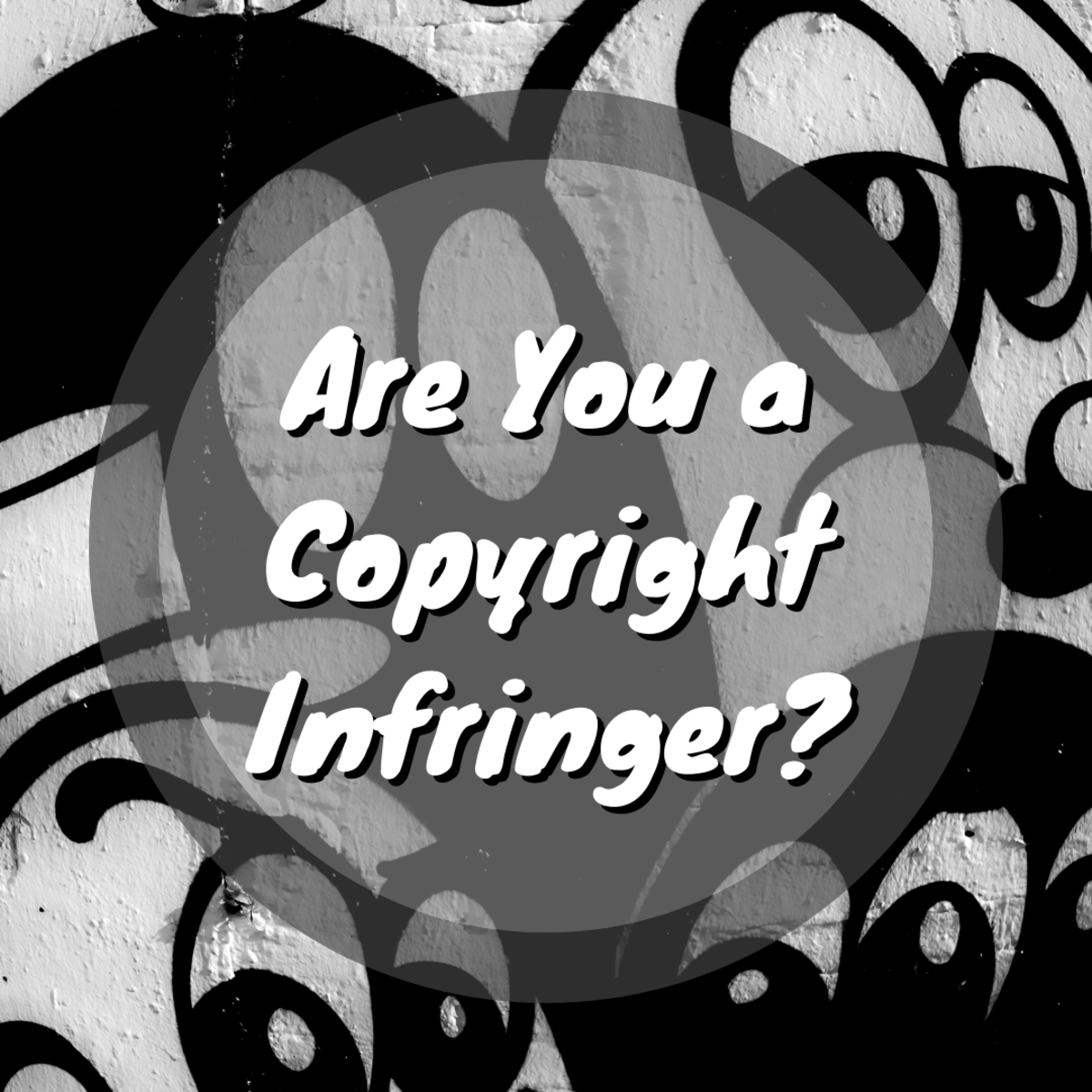
![Isn't the European Union the Model Conservatives Are Actually Asking the United States to Morph Into? [127*-8]](https://usercontent1.hubstatic.com/6376132_f120.jpg)
